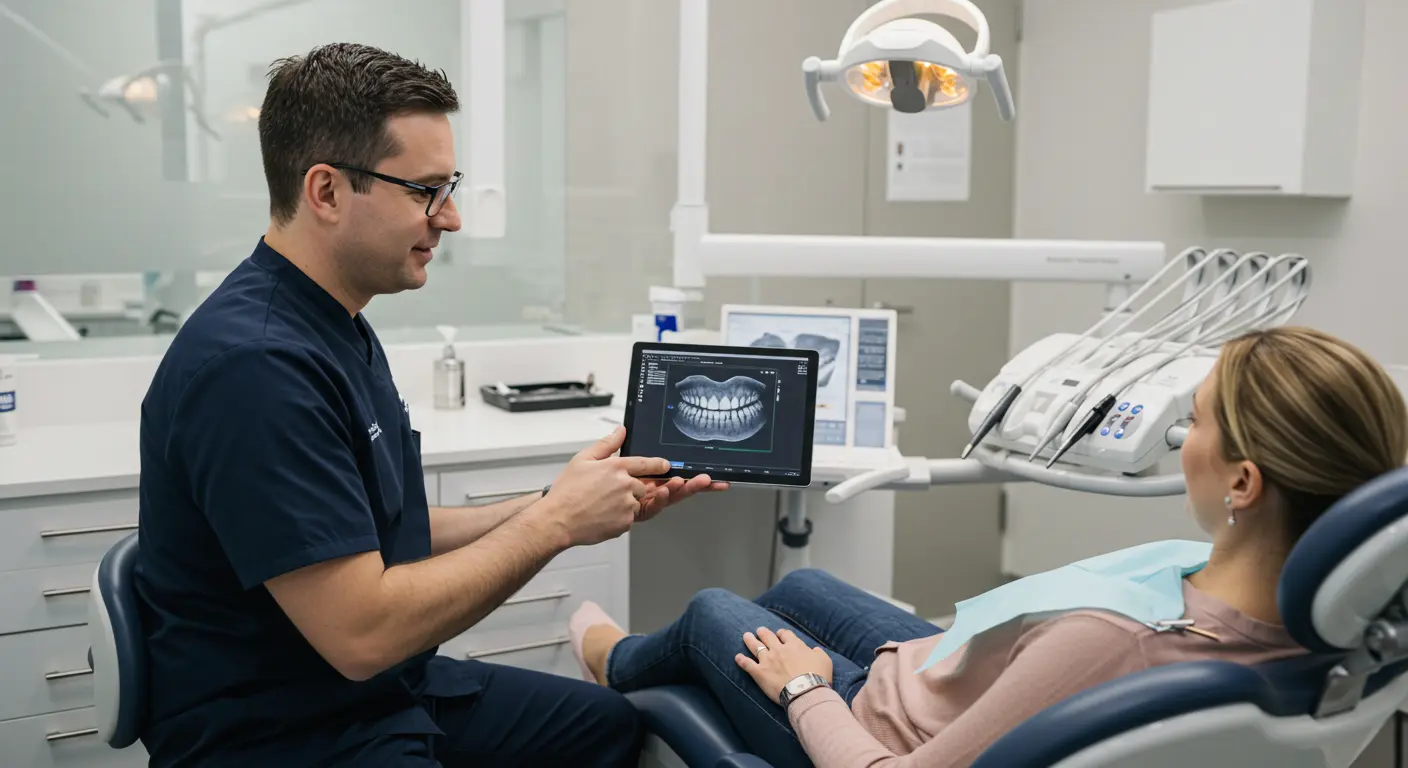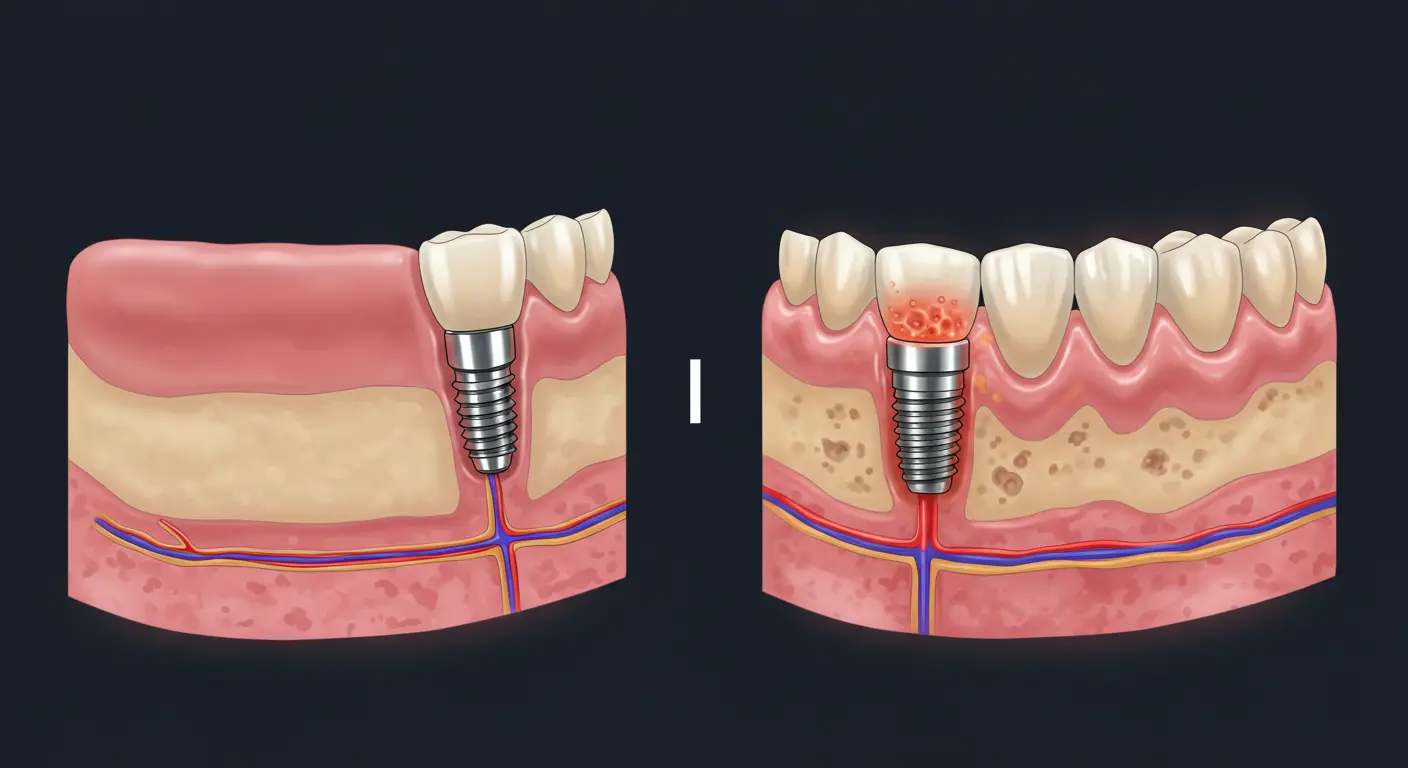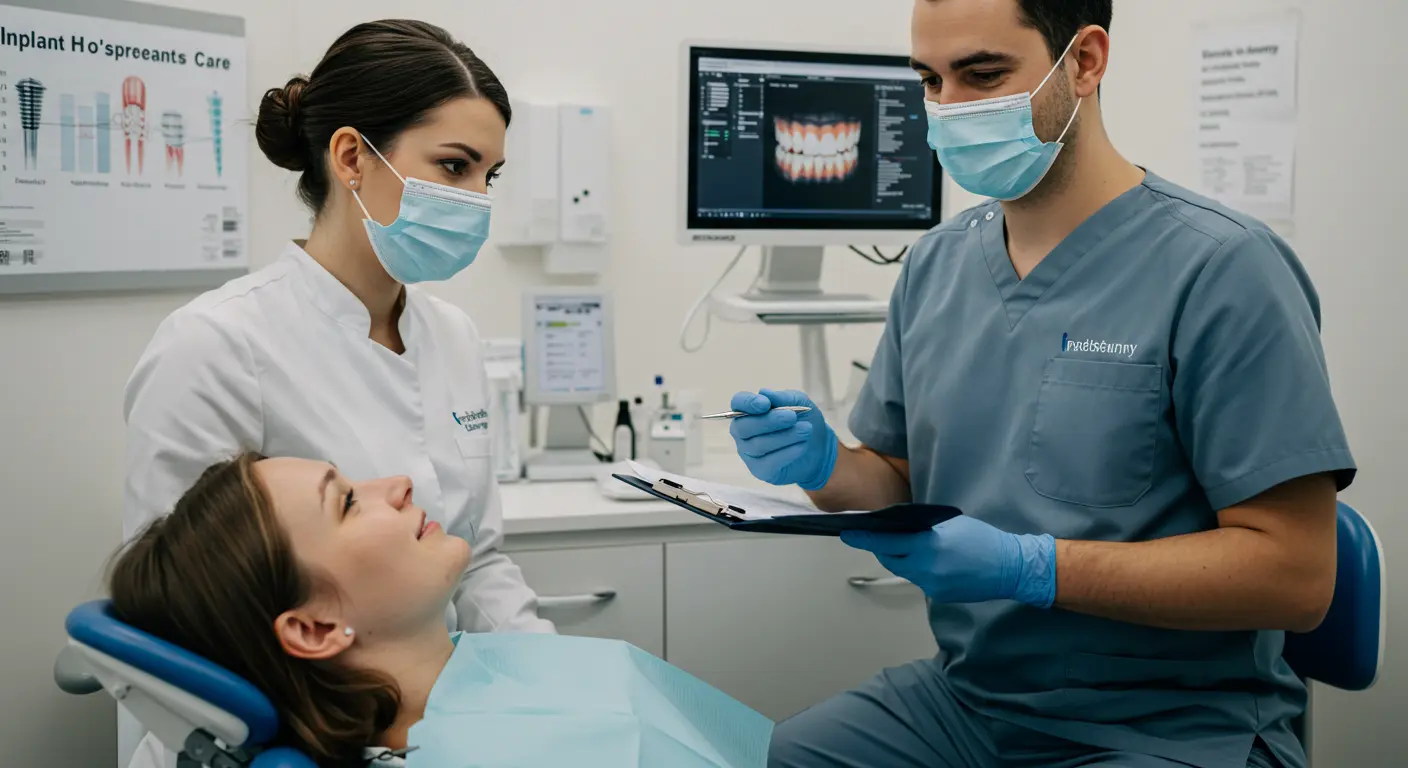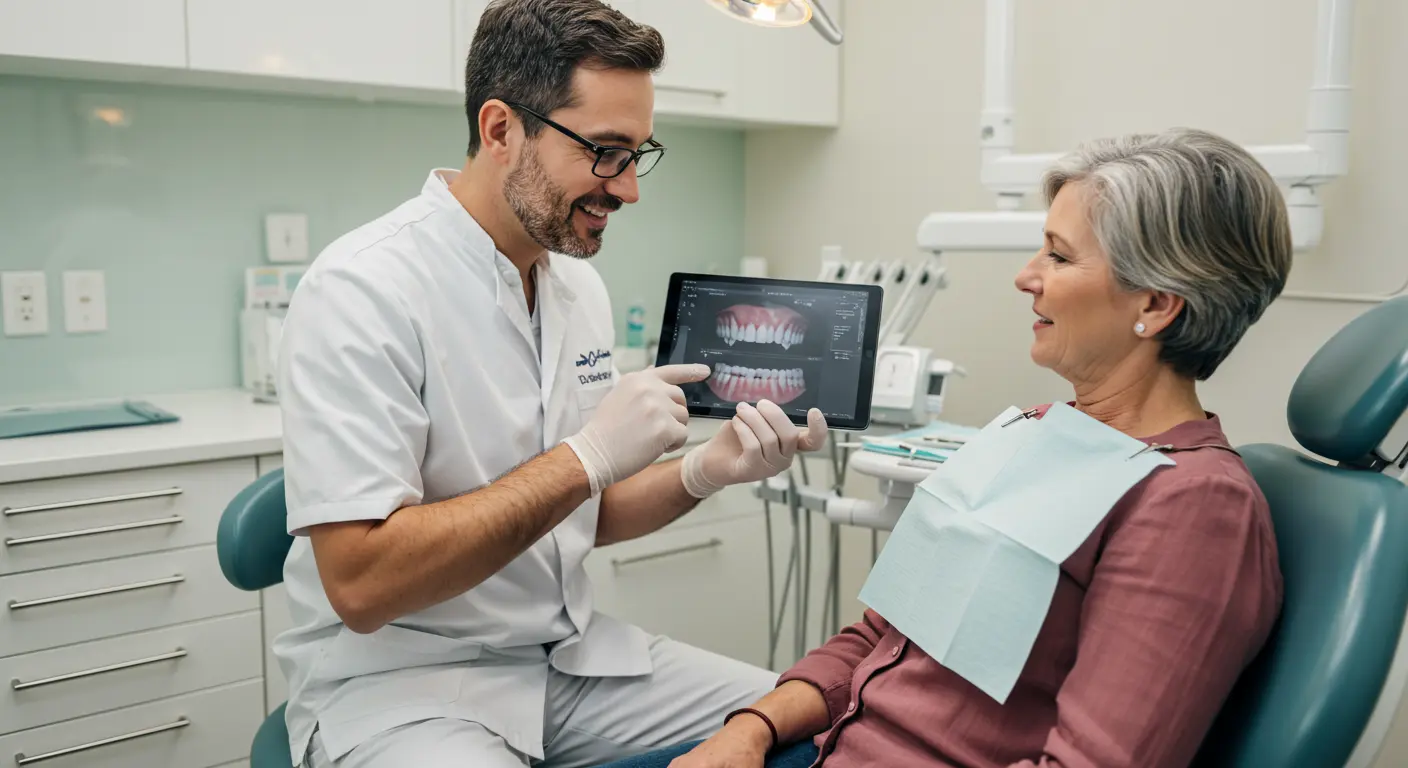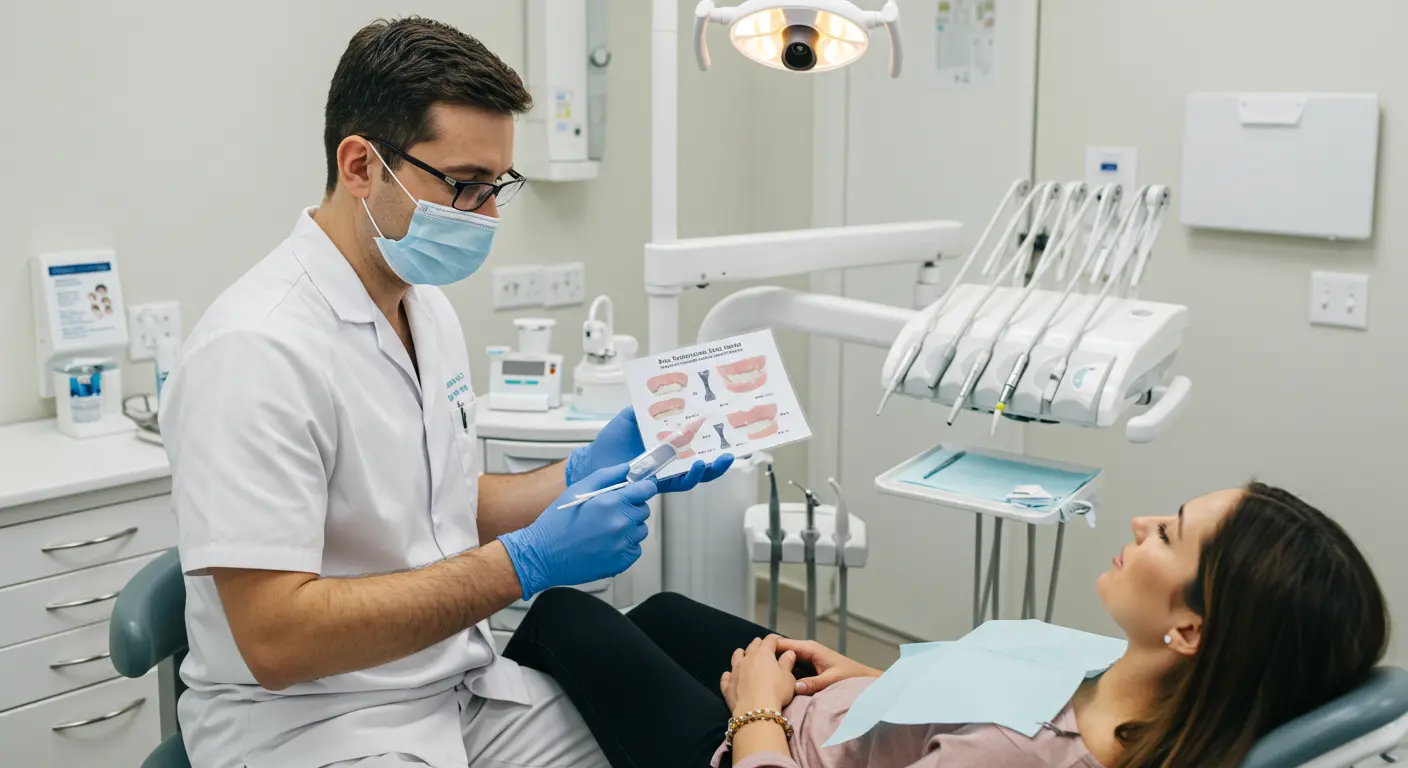Holistic Implant Care: How Your Lifestyle Impacts Treatment Success
Holistic implant care is a revolutionary approach in modern dentistry that recognizes the profound impact of diet, stress management, and overall health on the success of dental implant procedures. Holistic implant care emphasizes that achieving optimal osseointegration and long-term implant longevity goes beyond surgical precision—it also depends on a well-rounded, healthy lifestyle. In this comprehensive guide, we will explore how your lifestyle choices influence the integration and durability of dental implants, discuss actionable strategies for improvement, and offer insights into personalized care that enhances overall treatment success.
The Concept of Holistic Implant Care
Holistic implant care is based on the idea that dental implants do not function in isolation; rather, their success is interwoven with the patient’s overall well-being. By adopting a holistic approach, dental professionals consider various factors such as nutrition, stress levels, and general health habits that can significantly affect the healing process and the osseointegration of implants.
Key Elements of Holistic Implant Care
Diet: Proper nutrition provides the essential building blocks for bone regeneration and healing.
Stress Management: Chronic stress can impair the body’s healing processes, affecting implant integration.
Overall Health: Systemic conditions like diabetes, osteoporosis, and cardiovascular diseases can hinder recovery and compromise implant success.
How Diet Affects Implant Osseointegration and Longevity
Nutrition plays a fundamental role in osseointegration—the process by which the dental implant fuses with the jawbone—and in ensuring the longevity of your implant. A balanced diet rich in essential vitamins and minerals not only supports bone health but also aids in overall tissue repair.
The Role of Nutrients in Bone Healing
Calcium and Vitamin D:
Calcium is vital for bone formation and strength. It is a major component of bone tissue and helps in the mineralization process.
Vitamin D enhances the absorption of calcium from the diet and plays a crucial role in bone metabolism.
Practical Tip: Include dairy products, leafy greens, and fortified foods in your diet to maintain optimal levels of calcium and vitamin D.
Protein:
Proteins are the building blocks for tissue repair and regeneration. They are essential for the synthesis of collagen, a key component of the bone matrix.
Practical Tip: Incorporate lean meats, legumes, and nuts into your meals to support tissue healing.
Antioxidants:
Antioxidants such as Vitamin C help reduce inflammation and protect cells from oxidative stress, which can interfere with healing.
Practical Tip: Consume a variety of fruits and vegetables, such as berries, citrus fruits, and bell peppers, to boost your antioxidant intake.
Omega-3 Fatty Acids:
These healthy fats help reduce inflammation and promote overall cardiovascular and bone health.
Practical Tip: Include fatty fish like salmon, walnuts, and flaxseeds in your diet to reap the anti-inflammatory benefits.
Impact of Poor Nutrition on Implant Success
A diet lacking in essential nutrients can compromise the healing process, leading to delayed osseointegration and a higher risk of implant failure. For instance, insufficient calcium and vitamin D can weaken bone structure, while high sugar and processed food consumption can increase inflammation and bacterial growth, negatively affecting the implant site. Adopting a nutrient-rich diet is therefore critical for supporting holistic implant care and ensuring long-term success.
Stress Management and Its Effect on Implant Healing
Chronic stress is more than just an emotional burden—it can have tangible physiological effects that impair healing and compromise dental implant outcomes. Stress triggers the release of cortisol, a hormone that, in high levels, can inhibit bone formation and slow down the healing process.
How Stress Impacts Healing
Hormonal Imbalance: Elevated cortisol levels due to chronic stress can reduce the body’s ability to repair tissues and regenerate bone.
Inflammation: Stress can increase inflammation, which may interfere with the healing process around the implant site.
Immune Function: Prolonged stress weakens the immune system, making it harder for the body to fend off infections that could jeopardize osseointegration.
Effective Stress Management Techniques
Implementing stress management techniques is an essential part of holistic implant care. Here are some effective strategies:
1️⃣ Mindfulness and Meditation:
Regular mindfulness practices and meditation can lower cortisol levels and promote relaxation.
Tip: Consider apps like Headspace or Calm to guide your meditation sessions.
2️⃣ Physical Exercise:
Regular exercise improves overall health, reduces stress, and promotes better circulation, which aids in healing.
Tip: Even moderate activities like walking or yoga can have significant benefits.
3️⃣ Adequate Sleep:
Quality sleep is crucial for tissue repair and overall well-being.
Tip: Aim for 7-9 hours of sleep per night to support the healing process.
4️⃣ Professional Counseling:
For those experiencing severe stress or anxiety, professional counseling can provide valuable coping strategies and emotional support.
By effectively managing stress, patients can create a more favorable environment for osseointegration and long-term implant success.
Overall Health and Its Influence on Implant Longevity
Your overall health is intrinsically linked to the success of dental implants. Systemic conditions and lifestyle habits play a critical role in the healing process and the durability of the implant.
Chronic Conditions Affecting Implant Success
Diabetes:
Poorly controlled diabetes can impair healing and increase the risk of infections.
Managing blood sugar levels through diet, medication, and regular monitoring is essential for patients considering implants.
Osteoporosis:
Reduced bone density makes osseointegration challenging.
Patients with osteoporosis may require additional interventions such as bone grafts or specialized implant designs to ensure stability.
Cardiovascular Health:
Good cardiovascular health is vital for effective circulation and nutrient delivery, both of which are crucial for healing.
Maintaining a healthy lifestyle through regular exercise, a balanced diet, and proper medication management can enhance implant success.
Lifestyle Choices and Their Impact
Smoking:
Smoking negatively impacts blood flow and impairs healing, significantly reducing the success rate of dental implants. Quitting or reducing smoking is one of the most effective ways to improve implant outcomes.Alcohol Consumption:
Excessive alcohol intake can interfere with the healing process and may interact with medications prescribed post-surgery. Moderation is key for overall health and implant success.Regular Exercise:
Engaging in regular physical activity improves circulation, reduces stress, and contributes to overall well-being—factors that are critical for successful osseointegration.
Integrating Holistic Implant Care: A Comprehensive Approach
To achieve optimal outcomes, holistic implant care involves integrating diet, stress management, and overall health into every stage of the dental implant process. Here’s how a comprehensive, patient-centered approach is implemented:
1. Pre-Operative Phase
Comprehensive Health Evaluation:
Conduct thorough medical and dental evaluations to assess overall health, nutritional status, and bone density.
Use digital imaging and 3D scans to create a precise, personalized treatment plan.
Patient Education:
Educate patients on the importance of maintaining a balanced diet, managing stress, and adopting healthy lifestyle habits.
Provide clear instructions on pre-operative care to optimize the body’s healing capacity.
Customized Treatment Planning:
Develop a treatment plan that incorporates advanced digital planning tools, minimally invasive surgical techniques, and a tailored post-operative care regimen.
2. Intra-Operative Phase
Minimally Invasive Techniques:
Use computer-guided surgery and flapless techniques to reduce tissue trauma and enhance recovery.
Employ advanced biomaterials and digital tools to ensure precise implant placement.
Effective Anesthesia and Sedation:
Implement local anesthesia and, if necessary, sedation protocols that minimize stress and pain during the procedure.
Continuous monitoring ensures patient comfort and safety throughout the surgery.
3. Post-Operative Phase
Strict Oral Hygiene and Care:
Provide detailed, step-by-step oral hygiene instructions to maintain the implant site.
Recommend antiseptic mouth rinses and gentle brushing techniques.
Nutritional Guidance:
Advise patients on a nutrient-rich, balanced diet to support bone regeneration and healing.
Emphasize the importance of hydration and the intake of essential vitamins and minerals.
Stress Management:
Encourage patients to adopt stress-reducing practices such as meditation, regular exercise, and adequate sleep.
Provide resources for professional support if needed.
Regular Follow-Up Appointments:
Schedule frequent check-ups to monitor the healing process and make necessary adjustments to the treatment plan.
Use digital imaging to assess osseointegration and ensure that the implant is integrating properly with the jawbone.
Comparative Analysis: Holistic Implant Care vs. Traditional Implant Protocols
To highlight the advantages of a holistic approach, consider the following comparison:
| Aspect | Traditional Implant Protocols | Holistic Implant Care |
|---|---|---|
| Diet and Nutrition | Often overlooked; generic advice | Customized nutritional guidance to support healing |
| Stress Management | Minimal focus on stress reduction | Integrated stress management techniques (e.g., meditation, exercise) |
| Overall Health | Limited consideration of systemic conditions | Comprehensive health evaluation and personalized care |
| Digital Planning | Basic imaging and planning | Advanced 3D imaging, Digital Smile Design, and computer-guided surgery |
| Patient Education | Standard consultations | Extensive, personalized education and ongoing support |
| Long-Term Outcomes | Effective, but variable | Higher success rates and improved implant longevity due to holistic care |
This table demonstrates that a holistic approach not only addresses the surgical aspects of dental implant placement but also enhances overall healing and long-term success through a focus on patient lifestyle.
Clinical Evidence and Research Supporting Holistic Implant Care
Recent studies have shown that patients who adhere to a holistic implant care regimen experience significantly better outcomes. For instance, research published in the Journal of Oral Implantology indicates that:
Patients following a tailored nutritional and stress management plan exhibited a 30% faster healing rate.
Comprehensive patient education and digital planning have led to improved osseointegration, with success rates exceeding 95%.
The integration of holistic practices in dental implant protocols has resulted in higher patient satisfaction and reduced post-operative complications.
These findings underscore the importance of adopting a holistic approach in dental implant care to maximize both functional and aesthetic outcomes.
Patient Success Stories
Case Study 1: Enhanced Healing Through Nutritional Support
A 40-year-old patient, Sarah, experienced significant bone loss due to periodontal disease and required dental implants to restore her smile. Along with the implant procedure, Sarah followed a personalized nutritional plan that included increased intake of calcium, vitamin D, and protein-rich foods. Combined with regular stress management practices, Sarah’s healing process was remarkably smooth. Her implants integrated successfully within three months, and she reported a noticeable improvement in her overall well-being and confidence.
Case Study 2: Comprehensive Care for a High-Stress Lifestyle
Mark, a 38-year-old high-stress professional, was hesitant about undergoing dental implant surgery due to anxiety and concerns about recovery. After a detailed consultation, his dental team implemented a holistic care plan that included meditation sessions, a customized diet, and advanced digital planning for implant placement. Mark’s recovery was swift, and he was able to resume his daily activities with minimal discomfort. His case highlights how a comprehensive approach to holistic implant care can significantly enhance patient outcomes even in high-stress lifestyles.
Patient Testimonials
“I never realized how much my diet and stress were affecting my dental health. With the holistic care approach at Smile Design NJ, my implants healed faster and I feel so much more confident.” – Jessica, 42
“The personalized care I received made all the difference. The holistic implant care program helped me manage my stress and improve my overall health, leading to a successful implant restoration.” – Michael, 39
Economic and Societal Benefits of Holistic Implant Care
Implementing holistic implant care not only improves individual patient outcomes but also has broader economic and societal benefits:
Reduced Healthcare Costs: By enhancing the healing process and reducing complications, holistic care can lower the need for additional treatments and follow-up procedures.
Improved Productivity: Patients experience faster recovery times, allowing them to return to work and daily activities sooner.
Enhanced Quality of Life: Restoring a natural, confident smile contributes to improved self-esteem and social interactions, positively impacting mental health.
Innovation and Growth: The focus on holistic care drives continuous research and technological advancements, benefiting the entire dental industry.
Future Trends in Holistic Implant Care
As technology and research continue to evolve, the future of holistic implant care looks promising. Emerging trends include:
Smart Implants and Regenerative Therapies
Future innovations may incorporate smart implants with built-in sensors to monitor healing in real time, along with regenerative biomaterials that stimulate natural bone growth, ensuring even better integration and longevity.
AI-Driven Personalized Care
Artificial intelligence will play an increasing role in personalizing treatment plans. By analyzing patient data, AI can help tailor nutritional, stress management, and oral care protocols to optimize healing and implant success.
Enhanced Digital Workflows
Continued advancements in digital imaging, 3D printing, and computer-guided surgery will further streamline implant procedures, making them more efficient and reducing recovery times. These technologies will also enable more accurate monitoring of the healing process.
Integration of Holistic Health Practices
Future approaches will likely see an even greater integration of holistic health practices into dental care, including personalized wellness programs that combine diet, exercise, and stress management with routine dental treatments.
Conclusion
Holistic implant care is not just a buzzword—it represents a paradigm shift in how we approach dental implant procedures. By recognizing the critical role that diet, stress management, and overall health play in the osseointegration and longevity of dental implants, we can significantly enhance patient outcomes. When you ask, “Are dental implants the right option for you?”, the answer lies not only in the surgical procedure but also in the comprehensive, holistic care that surrounds it.
Advanced digital planning, minimally invasive techniques, and personalized post-operative care have all contributed to the success of dental implants, as evidenced by countless clinical studies and patient testimonials. By embracing a holistic approach, patients can achieve faster healing, improved implant stability, and a more natural-looking, confident smile.
If you’re considering dental implants and are ready to experience the benefits of a truly patient-centered, holistic approach, now is the time to act. Our team at Smile Design NJ is dedicated to guiding you through every step of the process—from initial consultation and digital planning to post-operative care and long-term maintenance.
Are you ready to transform your smile with holistic implant care? Contact Smile Design NJ in Westfield, NJ, today to schedule your personalized consultation. Our expert team will create a customized treatment plan tailored to your unique needs, ensuring optimal healing and long-lasting implant success. Your journey to a radiant, confident smile begins now!


